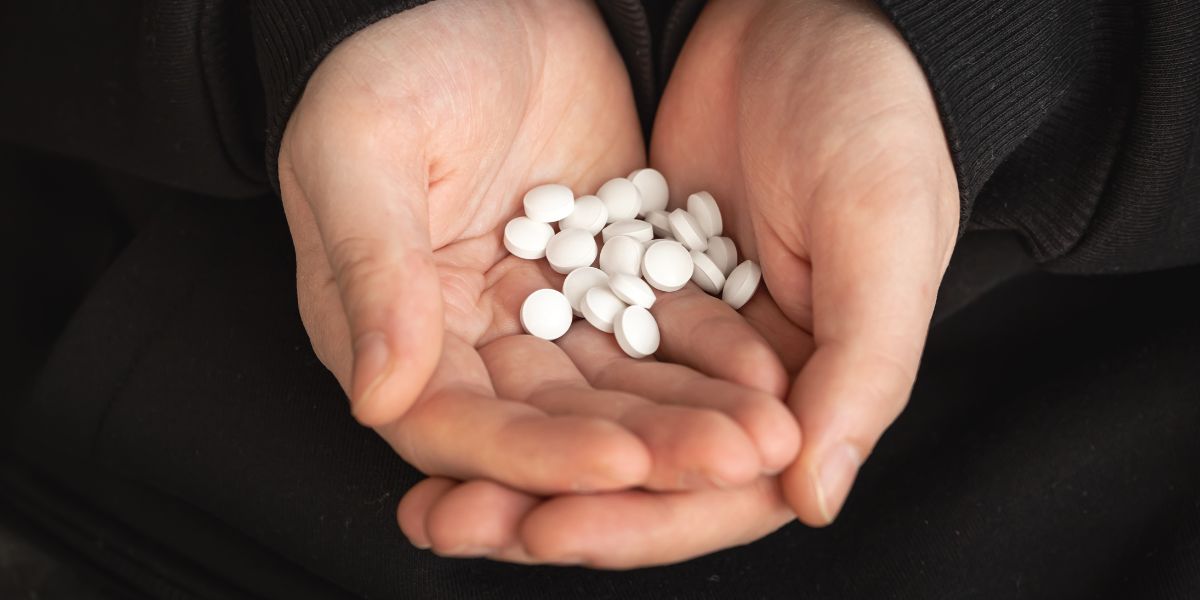Trazodone Addiction and Abuse

Trazodone is a prescription medication primarily used to treat major depressive disorder and other mental health issues. Initially made for depression, trazodone is now used for anxiety and sleep problems due to its calming effects. For many, this medication provides relief from the debilitating symptoms of depression and anxiety, offering a path toward recovery. Trazodone helps treat depression, but it can be misused and lead to dependency if not taken as directed.
Trazodone addiction is often ignored since it is not usually seen as a controlled drug. Some people misuse trazodone.
They take too much or use it to relax. This can lead to dependence on the drug. This dependence can escalate into full-blown addiction, characterized by a compulsive need to use trazodone despite the negative consequences it may bring.
Trazodone affects serotonin receptors in the brain, which control mood and anxiety. Stopping the medication suddenly can cause severe withdrawal symptoms. Withdrawal symptoms from trazodone can be physical and mental, making it hard for people to stop using it on their own. This cycle of misuse, dependency, and withdrawal highlights the importance of understanding the risks associated with trazodone use.
If you take trazodone or are concerned about addiction, it’s important to know the risks. You could become dependent on this medication. Awareness of the signs of trazodone abuse, the possible side effects, and the challenges of withdrawal can empower people to seek help before their use of the drug spirals out of control.
What Is Trazodone?
Trazodone is an antidepressant that belongs to a class of drugs known as serotonin receptor antagonists and reuptake inhibitors (SARIs). It is commonly prescribed for major depression.
It can also be used for insomnia and anxiety. However, officials have not approved it for these conditions. Trazodone works by balancing the serotonin levels in the brain, which helps improve mood and calms the central nervous system.
Trazodone is a medication used to treat depression. It can also improve sleep because of its calming effects. This makes it helpful for people who have trouble sleeping.
But, these effects can cause problems when people take too much or use the drug without a prescription. This misuse can quickly lead to physical dependency and, eventually, trazodone addiction.

Common Side Effects of Trazodone
Like all medications, trazodone has a range of side effects, some of which are more common than others. It’s important to know these side effects for people taking the drug and for others who might see changes in their behavior or health.
Common side effects of trazodone include:
- Drowsiness and Fatigue: Because of its calming effect, trazodone often causes drowsiness, especially when first starting the medication.
- Dizziness and Nausea: Users may experience dizziness, nausea, or both, particularly when they suddenly stand up or start taking the medication.
- Blurred Vision: Another side effect is blurred vision, which can make daily activities more challenging.
- Dry Mouth: Many users report dry mouth because they are taking trazodone.
- Headaches: Frequent headaches are also a common complaint among those using trazodone.
- Constipation: This medication can slow down bowel movements, leading to constipation.
- Weight Changes: Some people may experience weight gain or loss because of changes in appetite and metabolism.
These side effects are usually mild but can get worse if the trazodone dose is not managed correctly. In rare cases, trazodone can cause more serious side effects, such as suicidal thoughts, particularly in younger users. Monitor mood and behavior changes. Seek medical advice if side effects are concerning.
Signs of Trazodone Addiction
Recognizing the signs of trazodone addiction is crucial for early intervention. Addiction can develop when a person starts using trazodone in a way that is not prescribed, such as taking higher doses or using the drug for its sedating effects rather than for treating depression. With time, the body gets used to trazodone, needing more to feel calm, which can cause dependence and addiction.
Signs of trazodone addiction include:
- Increased tolerance
- Preoccupation with the drug
- Doctor shopping for multiple prescriptions
- Neglecting responsibilities
- Continued use despite negative consequences
- Physical dependency
These signs indicate that a person may have moved from regular use to a pattern of abuse, which can be dangerous. Being dependent on trazodone can cause intense withdrawal symptoms, making it hard to quit without professional help.

Trazodone Dependence and Addiction Treatment at Northridge Addiction Treatment Center
If you or someone you love is addicted to trazodone, it’s crucial to get help quickly. At Northridge Addiction Treatment Center (NATC), we specialize in treating substance use disorders with a compassionate, evidence-based approach.
NATC offers comprehensive treatments and therapies in a residential treatment center with custom-tailored treatment plans to meet each resident’s immediate needs. Our programs include medical detox, which can help you safely manage withdrawal symptoms associated with stopping substance use.
At NATC, we know addiction is a complex disease. We are dedicated to giving caring and effective treatment. Our team of experienced, caring professionals is here to guide you through every step of the recovery process.
Contact NATC today. Let us help you find the path to healing and a brighter future without the struggle of addiction.
Find Meaningful Recovery
Our caring and compassionate specialists are eager to help you comfortably navigate this journey to recovery. Our individualized treatment plan, programs, and therapies may be a perfect match for you or your loved one. Let us assist you in living the happy life you deserve. It starts with a phone call.




